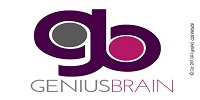shortcode test
fgdfg
Subscribe to Jobcareer Pacific newsletter to get the latest jobs posted, candidates ,and other latest news stay updatedSubscribe to Jobcareer Pacific newsletter to get the latest jobs posted, candidates ,and other latest news stay updatedSubscribe to Jobcareer Pacific newsletter to get the latest jobs posted, candidates ,and other latest news stay updated

Short TextShort TextShort TextShort Text Short Text Short Text Short Text Short TextShort TextShort TextShort TextShort TextShort TextShort TextShort TextShort TextShort TextShort TextShort TextShort TextShort Text
asFDAsf
- Candidate Candidate Candidate Candidate Candidate Candidate Candidate Candidate Candidate Candidate
- Candidate Candidate Candidate Candidate Candidate Candidate Candidate Candidate Candidate Candidate Candidate
- Candidate Candidate Candidate Candidate Candidate Candidate Candidate Candidate Candidate Candidate Candidate Candidate Candidate Candidate
-
hgjghj: Candidate Candidate Candidate Candidate Candidate Candidate
-
gsdgdh: Candidate Candidate Candidate Candidate Candidate Candidate Candidate
- Candidate Candidate Candidate Candidate
- Candidate Candidate Candidate Candidate Candidate
- vCandidate Candidate Candidate Candidate
'Services' element has been deprecated but introducing new element 'Info Box' with extra features
-
Time to embrace your… June 27, 2018
Time to embrace your mistakes Reference: LinkedIn; Forbes; BBC 22 Mar 2018 Like the rest of us, you probably have an aversion to making mistakes and seek to avoid them at all costs. However, this doesn't necessarily mean fear of failure is something you're born with, or that indulging it is particularly helpful from a psychological perspective. After all, making mistakes is integral to our learning path as humans. It's how, as toddlers, we learn to walk and speak. If we didn't do things badly to start with we'd probably never learn to do them at all. Whatever stage you're at in life, here are some of the reasons why it's important to embrace your mistakes: Breeding resilience through failure Exposure to failure gives us the skills to cope with life's ups and downs. An often-cited psychological experiment involved measuring the IQs of a group of schoolgirls against their capacity to deal with a series of tasks of varying difficulty. The test began with the harder tasks and, surprisingly, those with higher IQs performed worse overall. The smarter students hadn't the experience nor the resilience to move past the setbacks; those more used to overcoming challenges were able to let themselves fail at the harder tasks, dust themselves off and get on with the remaining exercises. Gaining perspective Failing and making mistakes is about understanding your own strengths and weaknesses and learning how to work with these. By being honest about your mistakes and seeking out the reasons for them, you'll have every chance..
Read More -
1.0 INTERVIEWS Before the job interview At the interview Typical interview questions to expect Count yourself lucky should your application be selected to the next stage of the recruitment process. The interview is very critical in demonstrating your fit for the role. It affords you the opportunity to discuss in greater detail how your skills and experience fits in the requirement and what you bring on board. It also allows the recruiter evaluate your gestures and mannerism. 1.1 SOME TIPS TO CONSIDER IN PREPARATION 1.1.1 BEFORE THE JOB INTERVIEW 1.1.2 Do a thorough check You must show interest in the organization by going on their website to read about what they do, how mission/vision fits in your own desires, their successes and performance on the market and their competitors. This will give you some tips in tailoring and reviewing your CV . Once you have a fair understanding of what the organization does, think about how what contributions and difference and you can make with your skills. 1.1.3 Plan your trip to the interview venue The invitation to interview will normally state the location; make an effort to locate this before the interview date. Missing your way to the venue could make you panic, it is therefore important to get this right. Keep contact numbers of the recruiter or the organization so that should the unexpected happen you notify them promptly. Getting to the interview location early helps you relax and be better prepared. 2.1 AT THE INTERVIEW 2.1.1 Be yourself and professional Feeling nervous about..
Read More -
Tips for job hunting December 6, 2017
1.0 TIPS FOR JOB HUNTING Your curriculum vitae Distinguish yourself The first hurdle to jump when applying for a job is to understand that your CV represents you and it’s your key marketing tool. The process of hiring commences with a longlist, a shortlist and continue to interviewing. To go through each of these, you must be able to clearly present your abilities, skills and experience. Know that employers receive 100s of applications for jobs posted and therefore spend little time in reviewing these. Your CV must be relevant and succinct to receive the attention it deserves. 1.1 YOUR CURRICULUM VITAE 1.1.2 Your contact details Your email and telephone number must necessarily be on your CV not just in the email because recruiters may not go back to your application to search for this 1.1.3 Personal statements Most CVs show generic statements instead of tailored statements that reflects the summary of experience and key skills qualifying the applicant for the job. Avoid statements like ‘ I am hardworking, focused etc. Be succinct but precisely show who you are… 1.1.4 Experience To give an idea where you are in your experience, start with your most recent job, work experience or voluntary placement and work your way back. Table your job titles, the organization, the dates you were employed and your achievements with figures and statistics if you can. All the dates should match up; where there are gaps give relevant explanation(s). 1.1.5 Qualifications, training and education Provide a table of your education (school, college or university)..
Read More
User Login
Register
User Registration is disabled
sadafs efe
- Accountancy(0 open position)
- Banking(0 open position)
- Charity & Voluntary(0 open position)
- Digital & Creative(0 open position)
- Estate Agency(0 open position)
- Graduate(0 open position)
- IT Contractor(0 open position)
- Legal jobs(0 open position)
- Leisure & Tourism(0 open position)
- Leisure & Tourism jobs(0 open position)
- Manufacturing jobs(0 open position)
- Marketing & PR(0 open position)
- Marketing & PR jobs(0 open position)
- Media(0 open position)
- Media, Digital & Creative jobs(0 open position)
- Motoring & Automotive(0 open position)
- Public Sector(0 open position)
- Purchase Ledger Clerk(0 open position)
- Purchasing(0 open position)
- Retail(0 open position)
- Sales & Marketing(1 open position)
Sorry ! There are no listings matching your search.
- Please re-check the spelling of your keyword
- Try broadening your search by using general terms
- Try adjusting the filters applied by you


